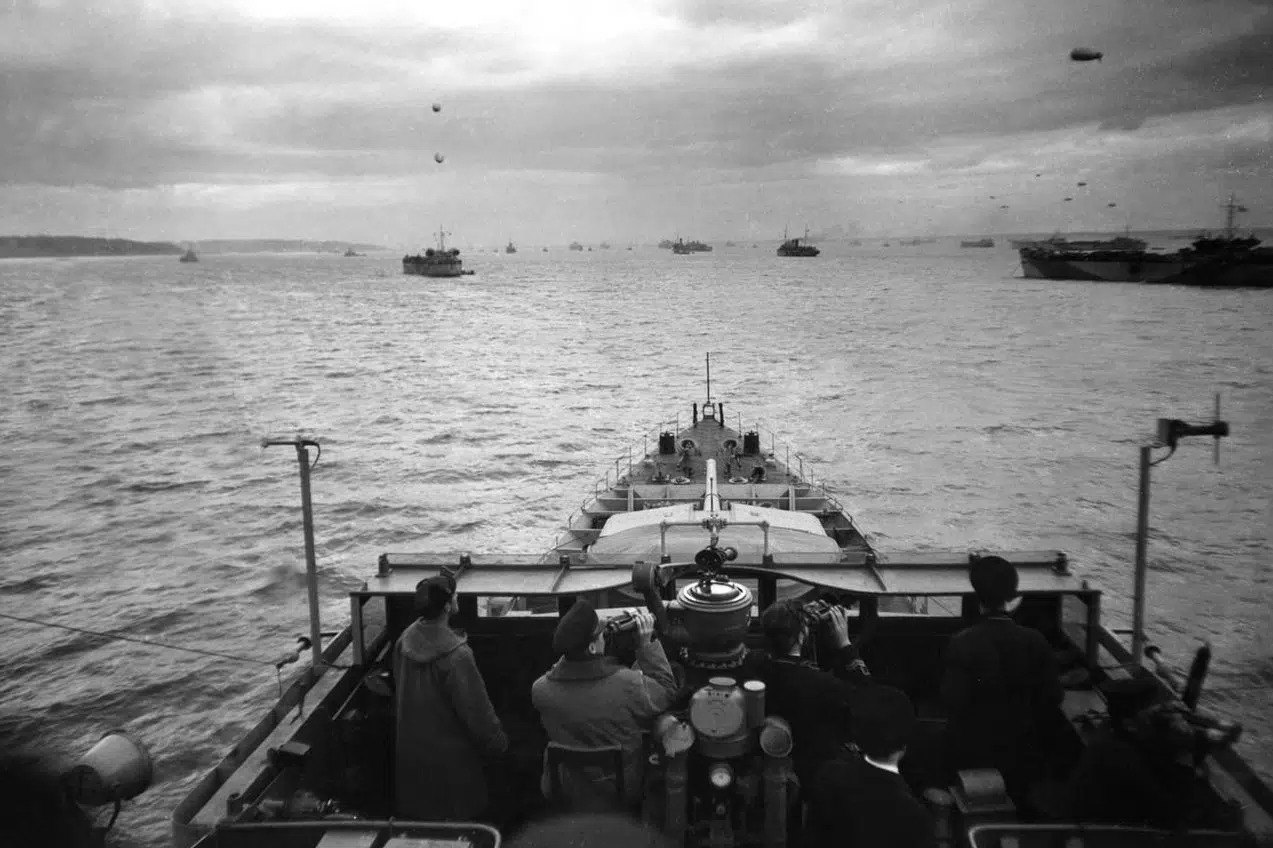OTTAWA — Albert Roy was a fresh-faced 20-year-old from St. Jean Baptiste, Man., when Canadian, American and British troops stormed ashore on D-Day to begin the liberation of Western Europe from Nazi control.
An anti-aircraft gunner, Roy was not in the first wave on June 6, 1944. He spent much of the first month after the invasion waiting to set foot on the mainland. Shortly after he landed in July 1944, however, tragedy struck.
Roy’s unit was passing the city of Caen when he looked up and saw a Lancaster bomber opening its bomb doors.
“I yelled: ‘Hey, let’s get to the slit trenches. He’s not aiming properly,’ ” recalls Roy, who is now 95 years old. “I managed to get into my slit trench, but we got hit by shrapnel quite a bit.”
That shrapnel tore into Roy’s paybook, which he is carrying back to France this week. The paybook isn’t the only thing he is carrying: there is also a piece of shrapnel still in his leg — and memories are in his head.
“The worst thing I went through in the war was the friendly bombing because I lost so many of my friends,” Roy says, adding of his return to Normandy: “There will be a lot of sad memories.”
On Thursday, Roy will be among several dozen Canadian veterans who will return to the stretch of French coastline forever after known as Juno Beach, to commemorate the 75th anniversary of D-Day.
Prime Minister Justin Trudeau and his counterparts from the United States, the United Kingdom and France will also be on hand and voice their nations’ eternal gratitude to the men and women who sacrificed so much for the causes of liberty and freedom.
The commemorations will begin Wednesday in the British port city of Portsmouth, where thousands Allied troops embarked for the invasion, before culminating Thursday with a Canadian-only and an international ceremony at Juno Beach.
It was at Juno that 14,000 Canadians stormed ashore, fighting shoulder-to-shoulder with British and American troops to break through Hitler’s Atlantic Wall and begin the liberation of Western Europe.
More than 1,000 Canadians were killed, injured or captured on D-day and more than 5,000 over the next two months as the Allies struggled to break out of their beachhead during the Normandy campaign.
Among those who went ashore on that fateful day was Joseph Edwardson, who had enlisted with several other young men from the northern Quebec community of Oskelaneo and ended up with the Royal Regina Rifles.
Initially planned for June 5, D-Day was postponed by a day because of bad weather. The ocean was nonetheless extremely rough on June 6 as the landing craft carrying Edwardson and the other Canadians bore down on France.
“The ocean was picking up these landing craft and dumping them up close or even on top of these (German underwater mines) and blowing up the doggone craft,” recalls Edwardson, who now lives in Sarnia, Ont.
“So we stayed out a little further beyond the reach of the (mines). And there we lowered and the ramps and the guys jumped into the water and started heading towards the shore.
“I didn’t go out the front,” adds Edwardson, whose company lost half its men on D-Day. “We went over the side because the machineguns were trained on the front of it and we decided that was not a good way to go.”
Like many surviving veterans, Edwardson has been back to Normandy several times and one thing that strikes him each time is the quiet, which stands in stark contrast with the gunfire, explosions and screaming of D-Day.
For Roy, however, this will be his first time aside from one visit with his wife during a previous tour of Europe. In fact, he didn’t really talk about his wartime experience with his family until recently — the wounds were too deep.
“When I came home, I decided to forget the war and I did pretty well,” Roy says. “My kids never heard anything from the war … It’s not something you want to remember. When you see the people lying there, it really affects you.”
Both Roy and Edwardson nonetheless say it is imperative that Canadians understand and remember what happened 75 years ago, when thousands of young men braved German bullets and bombs to fight tyranny.
“Our future generations of Canadians have to realize what it takes to build a nation, who pays for it and how fortunate they are to live in a free country,” says Edwardson.
“I think they should remember that generations before them went through a lot to help establish a country and they should be grateful about where they live. In other words, patriotism.”
—Follow @leeberthiaume on Twitter
Lee Berthiaume, The Canadian Press







